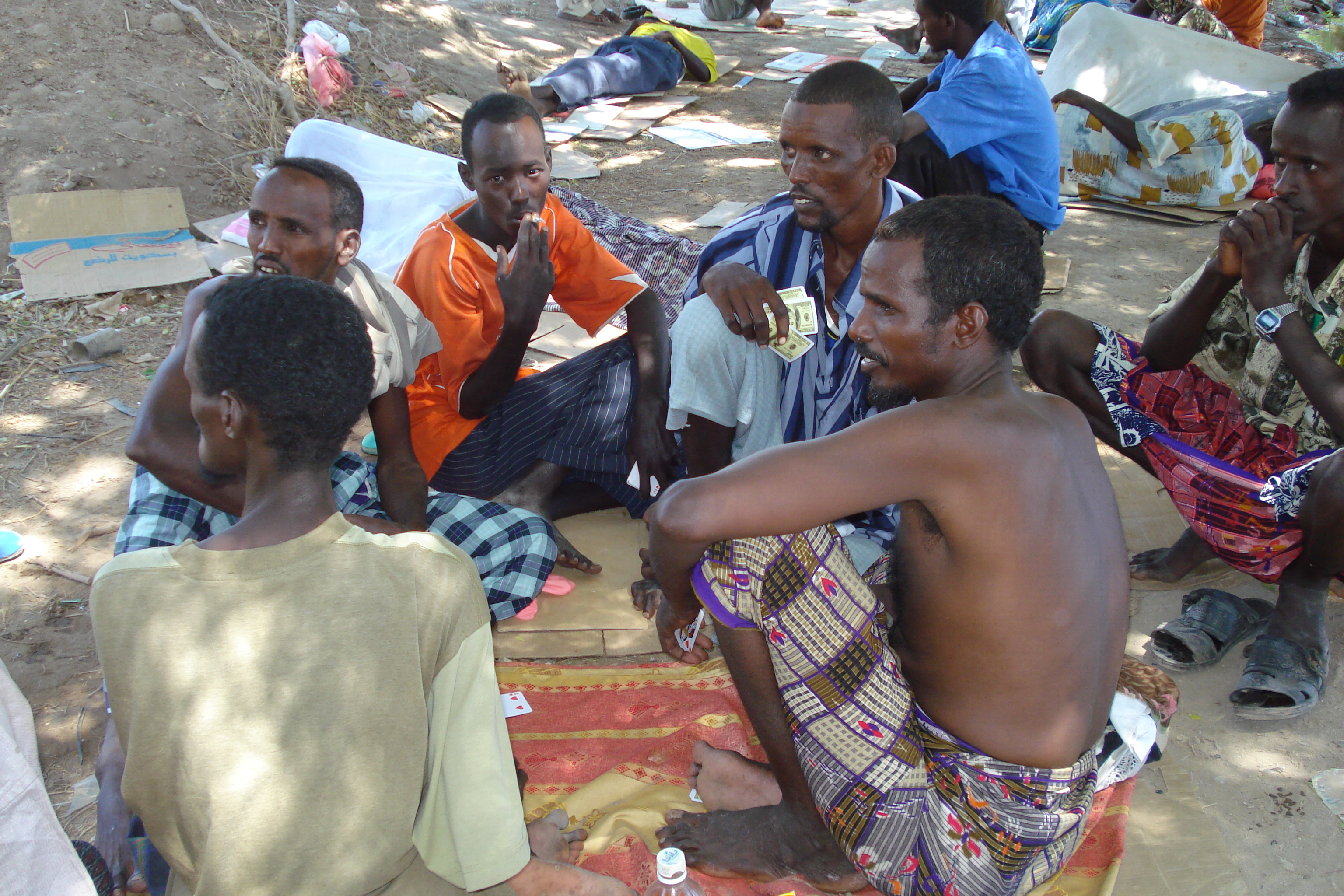The UN World Food Programme (WFP) is to extend food aid to an additional 10,500 African refugees, mainly Somalis fleeing clashes in their own country.
WFP, which expects more Somali refugees to arrive in Yemen as a result of the clashes, will increase the number of African refugee food aid beneficiaries from 33,000 to 43,500, providing them with 5,000 metric tonnes of food.
In a statement on 6 February, WFP said it had appealed for US$4.4 million for the operation, which will run from February 2008 to January 2010.
Somalis are automatically given refugee status by the government of Yemen once they arrive in Yemen and ask for it, and the UN Refugee Agency (UNHCR) sometimes gives refugee status to Africans (like Ethiopians and Eritreans) other than Somalis.
"More and more people are arriving on Yemen's shores after barely surviving the dangerous journey by boat. It is up to us to help them as Yemen's economy is already overstretched," said WFP Yemen Country Director Mohamed al-Kouhene.
Al-Kouhene said the recent increase in beneficiaries was based on the anticipated arrival of new refugees at transit centres in Yemen, as well as refugee population growth at the isolated camp of Kharaz in Lahj Governorate where job opportunities are scarce.
The operation targets new African arrivals as well as those who have already been in the country. New arrivals in Yemen currently receive - and will do so under the new operation - energy biscuits and water supplied by WFP through UNHCR field workers.
The would-be African refugees are then brought to the UNHCR's reception centre in Mayfaa, in the southern province of Shabwa. There they are fed by WFP for 2-3 days, and then given the option of either staying in the UNHCR's Kharaz camp, 150km west of Aden, or going to any other part of the country.
The WFP started operations to feed African migrants in 1992, and it has an office in the port city of Aden.
WFP aid for schoolchildren
The operation also targets the children of African refugees in three schools - two in Kharaz camp and one in al-Basatin, a poor neighbourhood in Aden which is home to over 15,000 Africans. According to the WFP, an average of 1,400 students in Kharaz schools and another 1,200 in al-Basatin received a cooked wheat-soya blend as a daily meal during 2007. The WFP expects the number of students to increase in 2008 and 2009.
According to UNHCR statistics, there are 9,000 African refugees, mostly from Somalia, in Kharaz camp. The WFP, however, expects the number to increase due to the increase in new arrivals from Africa, as well as Africans who arrive at the camp from other Yemeni cities after getting into economic difficulties.
The WFP operation, which will also include food for work and/or training to help refugees become more self-sufficient, will be implemented in cooperation with the Yemeni government and in partnership with the UNHCR and non-governmental organisations, WFP said.
maj/ar/cb
This article was produced by IRIN News while it was part of the United Nations Office for the Coordination of Humanitarian Affairs. Please send queries on copyright or liability to the UN. For more information: https://shop.un.org/rights-permissions





